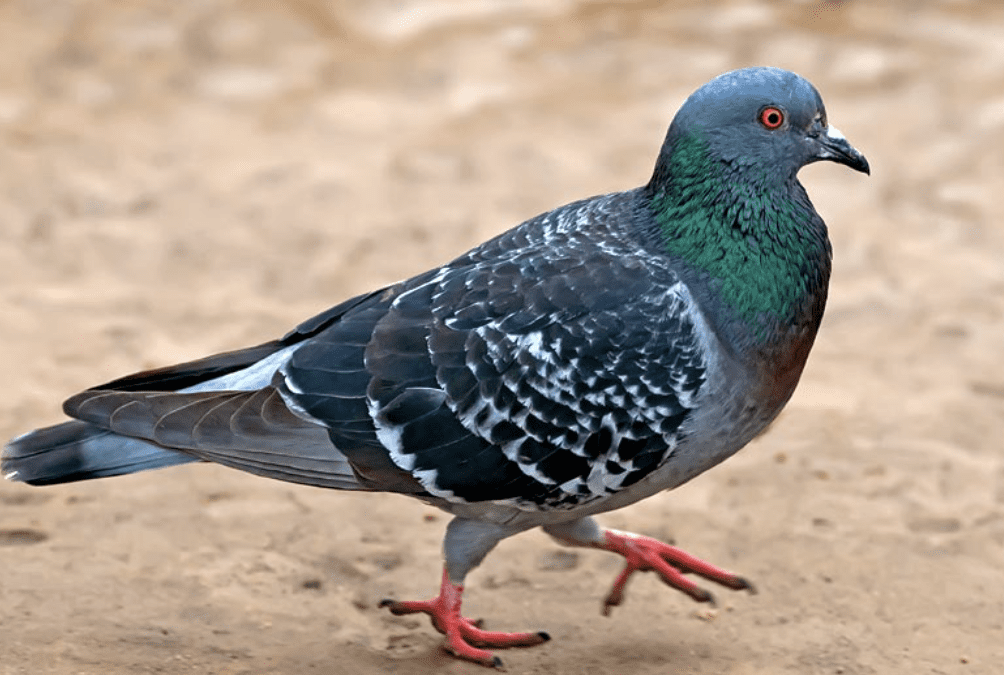
Pigeon Nesting and Breeding Patterns and Behavior
Pigeon Nesting and Breeding Patterns and Behavior
Pigeon Nesting
Nest building is very simple and often consists of a few stiff twigs. The male will pick the site. They prefer small flat areas away from the ground. Look for nests along building ledges, bridge supports, air conditioning units, window sills, and the like. In crowded flocks, pigeons will even forgo nest building and lay eggs directly on a protected ledge. The young are fed pigeon milk, a liquid/solid substance secreted in the crop of the adult (both male and female) which is regurgitated. More eggs are laid before the first clutch leaves the nest. Breeding may occur at all seasons, but peak reproduction occurs in the spring and fall.
Pigeon Breeding
Pigeon are monogamous and a mating pair will typically have three or four broods a year. The female will usually lay two or sometimes three eggs at a time. The eggs are a solid bright white color. The eggs take roughly 18 days to hatch and then another 35 days before the fledglings leave the nest. Breeding may occur at all seasons, but peak reproduction occurs in the spring and fall. A population of pigeons usually consists of equal numbers of males and females.
Pigeon Cycles
Pigeons are not migratory. Their natural instinct is to stay near their birth site. This trait gives the pigeon a very determined personality when it comes to roosting at a particular site, much to the dismay of the inexperienced pest control technician. The daily cycle of a pigeon is to roost at night, feed in the morning, and loaf in the afternoon. The seasonal cycle begins with courtship in the early winter, then nest building in late winter and breeding in the spring. However, in warm climates, breeding will occur year round. Pigeons molt once a year in late summer.
Behaviour
As gregarious animals, feral pigeons tend to nest in flocks. Once they settle, they tend to nest at the same place for the rest of their lives. Pigeons are extraordinarily intelligent. Even when removed from the nest, they will return back to it. The distance doesn’t play a role—pigeons have “built-in” compasses in their bodies which provide tremendous help with orientation. No matter how far away from their home they are released, they will still find their way back.
Feral pigeons breed rapidly. They lay two eggs, up to six times a year—depending on the food available. If a local population is decreased, pigeons from other areas flock to take advantage of the abundance of food. Thus, poison often causes population boom rather than decrease. source
What Attracts Pigeons
Basically there are two things that attract pigeons to your house or garden:
- Food: Pigeons are not very pretentious when it comes to food. They could eat various scraps, leftovers, seeds, your dog/cats food, anything left behind. So don’t leave anything food-worthy in your garden.
- Living space: the attic or the air space between last floor and roof is the perfect place for a pigeon to live. Close all entrances if you don’t want to have pigeon droppings and insects feeding with them.
 About Pigeon Patrol:
About Pigeon Patrol:
Pigeon Patrol Products & Services is the leading manufacturer and distributor of bird deterrent (control) products in Canada. Pigeon Patrol products have solved pest bird problems in industrial, commercial, and residential settings since 2000, by using safe and humane bird deterrents with only bird and animal friendly solutions. At Pigeon Patrol, we manufacture and offer a variety of bird deterrents, ranging from Ultra-flex Bird Spikes with UV protection, Bird Netting, 4-S Gel and the best Ultrasonic and audible sound devices on the market today.
Contact us at 1- 877– 4– NO-BIRD, (604) 585-9279 or visit our website at www.pigeonpatrol.ca
Pigeon / Pigeon Patrol / Pigeons Roosting / Vancouver Pigeon Patrol / Bird Control / Surrey Pigeon Control / Pest / Vancouver Pigeon Blog / Birds Inside Home / Pigeons in the cities / Ice Pigeons/ What to do about pigeons/ most common types of sparrows , Damages Caused by Sparrows, How To Keep Raccoons Away, de-fence, Pigeon Nesting and Breeding Patterns and Behavior

